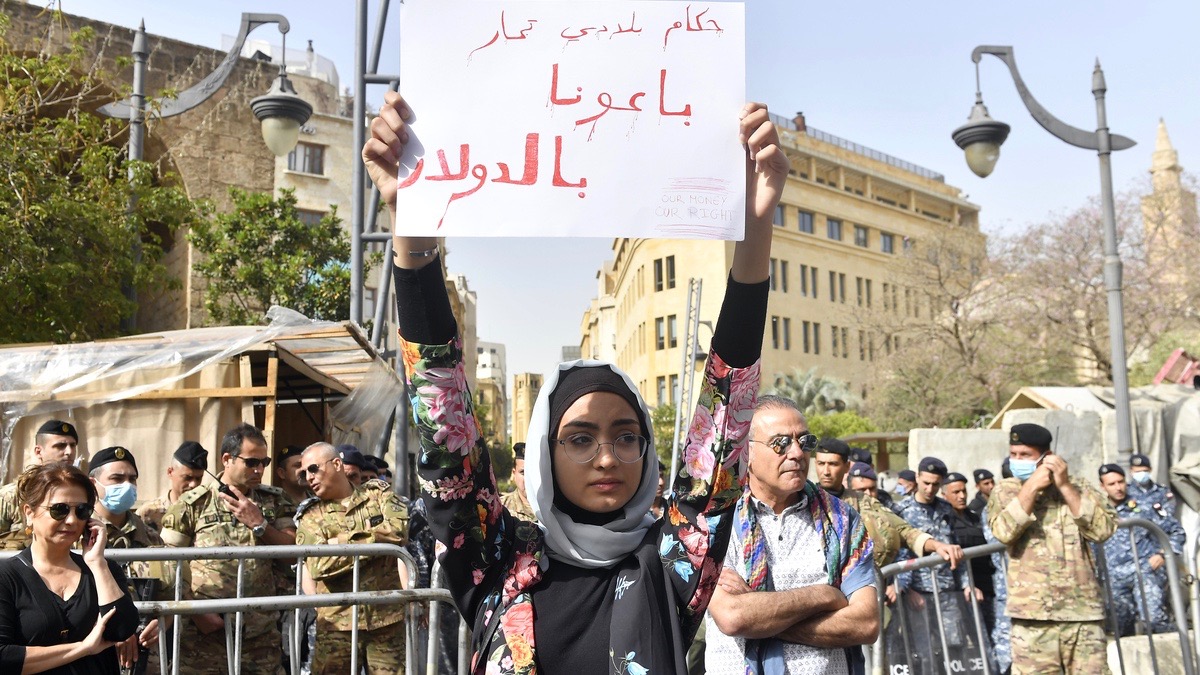The president of Lebanon’s economic, social and environmental council, Charles Arbid, claimed on Wednesday, April 27, that protests against the capital control law are unnecessary and there is a need for discussion on the issue involving all sections of the society, Lebanese National News Agency reported.
The draft law “gives bankers and their defenders absolute and unlimited freedom for three years, subject to extension, over old and new money that enters or exits the country.” The law also “gives this group, put together into a committee, power to ban, punish, exempt, cancel and refer banking issues to the judiciary.”
It is feared that the proposed law will harm small depositors, around 80% of the country’s depositors.The draft of the law does not talk about rights of depositors and gives Lebanese banks more powers. This will lead to people losing all forms of protection as banks can freeze their deposits for an indefinite period or force depositors to withdraw in local currency and not in dollars. The bankers and the government will not have any accountability for such moves as per the proposed law.
People in Lebanon are protesting against the government’s move to introduce a capital control law in the parliament under pressure from the International Monetary Fund (IMF). Hundreds gathered to protest a fresh attempt to pass the law in the parliament on Tuesday, April 25.
Protests against the law have been taking place regularly since April 19. During Tuesday’s protests in Beirut, hundreds of Lebanese came together carrying national flags and banners that bore slogans such as “Down with the rule of banks” and “Shame on you, the members of the parliament to legislate capital control law to legalize stealing of the whole people of Lebanon”. The protesters also chanted slogans against the politicians and accused members of the “committee” assigned to implement the law of introducing it to cover up taking their money out of the country.
This morning, protestors and syndicate members gathered in front of Parliament to protest parliamentary committees' discussion of the Capital Control draft law. The quorum wasn't met and the session was suspended.#EconomicCollapse #Capitalcontrol #IMF #Banks #Lebanon https://t.co/DD4FQkCXlr
— Megaphone (@megaphone_news) April 26, 2022
The parliament could not discuss the law on Tuesday because of lack of quorum as a large number of MPs abstained due to their opposition to the legislation in its current form.
The capital control law is a part of the so-called “reform” process initiative by the Lebanese government in exchange for an agreement with the IMF earlier this month. As per the agreement, the IMF agreed to provide USD 3 billion special drawing rights (SDRs) extended for nearly four years to the Lebanese government if it implements a set of eight reforms. The law is seen as a way to recover an estimated USD 69 billion loss to the banks in the last few years.
The government, however, claims that people are being misled to oppose the law and that they will not lose their deposits. Prime minister Najib Mikati claimed on Tuesday that his government is trying to protect the rights of depositors and people’s apprehensions are based on misinformation.
Depositors' Voices: (English thread)
Starting this thread to have a platform for all our depositors to voice their thoughts fears & anything related to their lawsuits.
We will be the voice of our depositors until they get their money back. #depositorsunion #Voices #Lebanon
1
— رابطة المودعين Depositors Union (@bdalebanon) April 27, 2022
Lebanese banks have already imposed controls on withdrawals and transfers since October 2019 due to the ongoing economic crisis, considered to be one of the worst recorded in world history.
The Lebanese pound has lost 90% of its value. Prices of essential commodities like food and medicines have gone beyond control, making them unaffordable to most of the population. According to official data, nearly 75% of the population is now living below the poverty line.
Though other reforms like passing this year’s budget and restructuring the country’s banks as dictated by the IMF are delayed until the national elections next month, the caretaker government led by prime minister Mikati has hurried to implement capital control.





